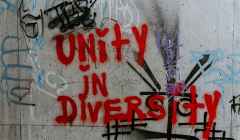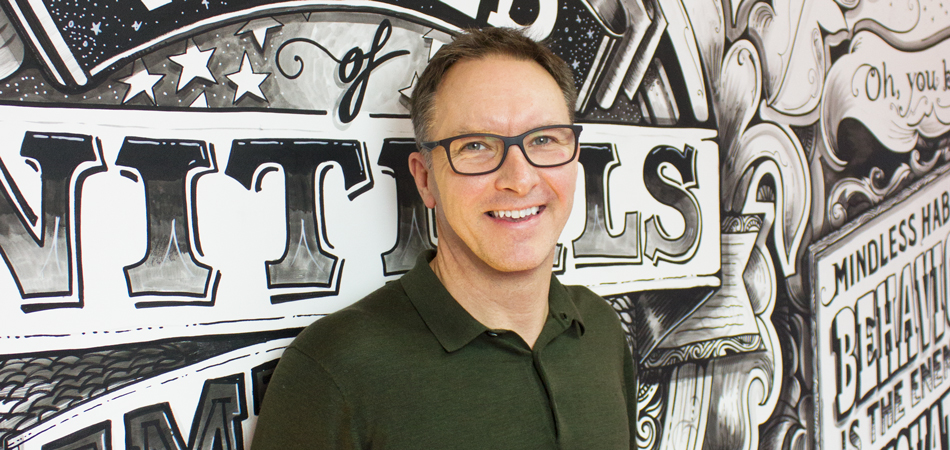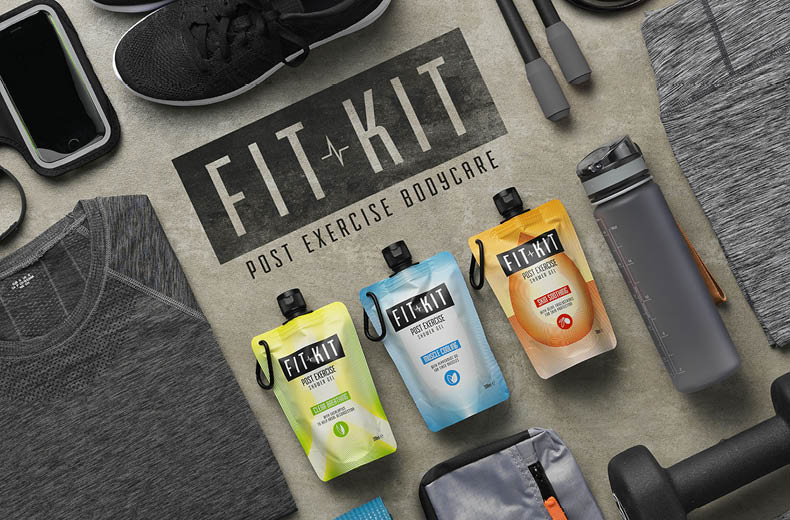
In a world where DE&I is under attack, here’s what production can do to keep pushing
Dan Keefe asks how do we lash back at the backlash?
CEO & Co-Founder, Initials


Career to date:
2006, CEO, Initials
2002, Board Director, Marketing Agencies Association
2000, Regional Director EMEA, Arc Worldwide
1999, Account Director, Billington Cartmell
1994, Account Director, Triangle Communications
1992, Account Manager, International Marketing Corporation
Jamie Matthews: I look at three things. Firstly commercials. I will look at anything to do with growing the balance sheet. Primarily I’ll be looking at ways in which we can grow the agency six months from now.
The second one is making sure the shop window from an agency point of view is clear and compelling. That falls into new business development and marketing. We’ve learnt over the years that the best people to lead that business development drive are the owners and partners of the business. No one can sell the business and agency better than the people that have created it.
Then finally the leadership team. We’ve got a slightly unusual structure for our agency size, you can compare it to a team of solicitors. We’ve got 60 people in the agency, eight at the top. Each of them takes a client leadership role within that. My job is to make sure that top team is working as well as possible, oiling the cogs.
Jamie Matthews: It’s always been agency side, small independents right through to large global networks. I have run the gamut. Covering below the line, brand activation, shopper and experiential. The language and the communication channels have changed but the fundamentals of the agency business haven’t. It’s still all about ideas and people.
Initials is 12 years old and when we were starting up, I naively thought with that weight of experience behind me, having ticked most of the boxes in terms of sectors, I should easily be able to run an agency or a business. You think it’s going to be an immediate success and you cannot understand why clients don’t join you. I’ve been doing this for 12 years now and I’m still learning more as each day goes by!
“But what excites me more is the way the industry evolves and changes because that creates opportunity for the likes of us."
Jamie Matthews: I was working for Publicis Group and it was becoming more difficult to service what the clients wanted as opposed to what internal politics demanded. I was fighting my way through internal red tape to meet client needs. I thought there must be a more compelling way to get them what they wanted.
When you set up, clients are very risk adverse, particularly with new start-ups. We had a list of clients we thought we were going to work with, that was plan A. We very quickly went to plan B because not a lot of them transferred. In fact, none of them did. You become the new business terrier. You are literally working all the hours God sends in the first few years because you haven’t got any case studies, you haven’t got a brand that has any resonance. All you’ve got is yourself. Our crude proposition when we set up for the first couple of years was smarter, faster, better value.
Today we talk about our combination of seasoned brain and youthful vigour working together. We’ve got people that have years of experience coupled with people that know the channels intimately. It’s a much healthier transaction between the groups.
Jamie Matthews: It’s a bit cheesy but I’m usually too fully immersed in the next wave of projects to reflect. But I really loved the more recent Strongbow Epic Entrance campaign. That was born out of an insight about what happens at festivals and the pain points around getting into them. But at the same time it had social content embedded within the idea and the link with Lad Bible. The layers of communication within that and how it all played out was interesting. Also for Philips who we create global toolkits for in Amsterdam, we’ve developed a compelling digital product advisor that’s being adopted around the world, allowing consumers or shoppers to choose the right product for them at shelf or online.
Then work we have done for more niche clients like The Gap Partnership, who are a strategic client for us because they’re specialists in negotiating. They train all our procurement clients how to negotiate with suppliers and agencies. Having that knowledge, we feel a lot better equipped. Another lesser-known client we’re proud of is Fit Kit, a toiletries brand for sports enthusiasts. We’ve taken shares in the company rather than full fees. We’ve rebranded it and have just heard in the last month that they are going to be listed in Waitrose.
Twinings are embracing different ways of working, versus say just the traditional ad they have done previously. They’re a breath of fresh air to work with. We’ve also been doing some lovely work with Maclaren Automotive as their global strategic lead across all their cars right from the 570 to the McLaren Senna. The job we’re doing for them is around building the brand at the same time as helping them sell more cars.
Jamie Matthews: I still love the creative side of it all because there are always new ideas coming through. But what excites me more is the way the industry evolves and changes because that creates opportunity for the likes of us. We know the market, how to develop business, how to run an agency so, let’s go out and speak to clients who are also respectful of that. We’ve worked with a lot of networked agencies and they’ve lost their swagger. For us, that means more opportunity.
Jamie Matthews: Today, we’ve got access to some of the best work from around the globe at the drop of a hat. Much of the work that is globally distributed is either ad, content, video based in nature. However, what I find more exciting is unearthing the more tech, digitally disruptive ideas that are changing the way we transact with brands. Testing them, playing with them, finding their flaws and ultimately working out how we can use them to change consumer behaviour.
“The more tech, digitally disruptive ideas that are changing the way we transact with brands. testing them, playing with them, finding their flaws and ultimately working out how we can use them to change consumer behaviour."
Jamie Matthews: There’s massive structural change around the FANGs (Facebook, Amazon, Netflix & Google), networks and consultancies, all of which point toward opportunities for independently minded agencies that can ‘do thinking and can think doing’. It’s an exciting time to be independent in our space.
Jamie Matthews: It’s about the talent pipeline, fuelling further growth. Over the last four years we’ve grown from a headcount of 20 to 30 to an agency of 60. One thing we’ve worked hard on is making sure we’ve got the right people on board who will deliver against our proposition. That fuels growth. Over the years we have invested in that and it comes through. Three or four years ago, we revised all our branding and we issued The Meaning of Us outlining our values and behaviours and how we work, which every colleague gets. It’s our ethos and to this day, not a lot of it has changed.
In London as well, it is about protecting the environment in which we work. Our spiritual home has always been the West End. Being somewhere like this means it’s easy to, A live your life because everything’s on your doorstep and B have the inside track on what’s going on. It’s one of the busiest high streets in the world and most creative concepts are either tested or seasoned here. My overarching ambition is growth but growth in a controlled way, protecting our culture.

Jamie Matthews: It’s about new ways to engage with clients. Avoid the pitch. We’ll do everything we can to stop it being a traditional pitch to the point of saying no sometimes. We’re happy to work with them on a one-to-one basis.
In reality, the chemistry session’s not about agency and client. The client is looking at the agency going “do you guys get on?” Agencies will lose because of their own failings in terms of how they work together internally rather than the brief being wrong or not cracking the idea. It’s about agency dynamics. That’s what clients buy into.
Jamie Matthews: I’m a member of a Supper Club which is a collective of 400 small to medium high gross businesses and we meet every month. Within Supper Club I meet with eight people who are other CEOs or MDs of different businesses and every month I walk away humbled and inspired by these people.
There’s a guy who’s 30, he and two other colleagues set up a company called BBOXX. His vision is to electrify Africa. He’s selling boxes to Rwanda and Kenya that power TVs and mobiles. He’s got BBOXX boxes being manufactured in China and then 1,000 operators in Rwanda and Kenya selling in townships. The scale of what they’ve produced is just amazing!
The MD of Harrods is another inspiration, I love how they’re changing their business from a retail point of view. He said: “we’re not a retailer traditionally. What we’re selling now is premium experiences. We’re selling the experience of walking in and being inspired to buy that Gucci handbag”. If Harrods are thinking that, we need to be thinking that for our clients.
Those sorts of experiences on a day-to-day basis shared by small to medium growth businesses have really helped inspire us to grow. I take learnings from how they run their businesses, from how they communicate internally. Why look at what the cluttered agency network is doing? Look elsewhere.
The trend that we’re focused on is the idea that customers want to know more about the social, economic and environmental impact of brands. How do you evaluate that in the brands you work with?
Our stance is always to look at the individual client relationships from the outset, reviewing the brand’s purpose in conjunction not in isolation. If there is mutual respect and shared values at the start, great work usually follows whether that be commercial and/or more purpose driven. It matters to us, if we have to we’ll resign accounts for exactly these reasons. Without the shared values and respect on an individual and team level it’s not possible to see a way to great work.
Another topical example, look at Facebook. Their mission is all about bringing the world closer together. This was clearly Mark Zuckerberg’s aim when the company was created. Obviously, there’s a lot of work to be done to move them back closer to this mission now.
Great work can only be achieved with clients and agencies that share a purpose on an individual and team basis. So, start there first and the world is your oyster in terms of where it will end.
Looks like you need to create a Creativebrief account to perform this action.
Create account Sign inLooks like you need to create a Creativebrief account to perform this action.
Create account Sign in